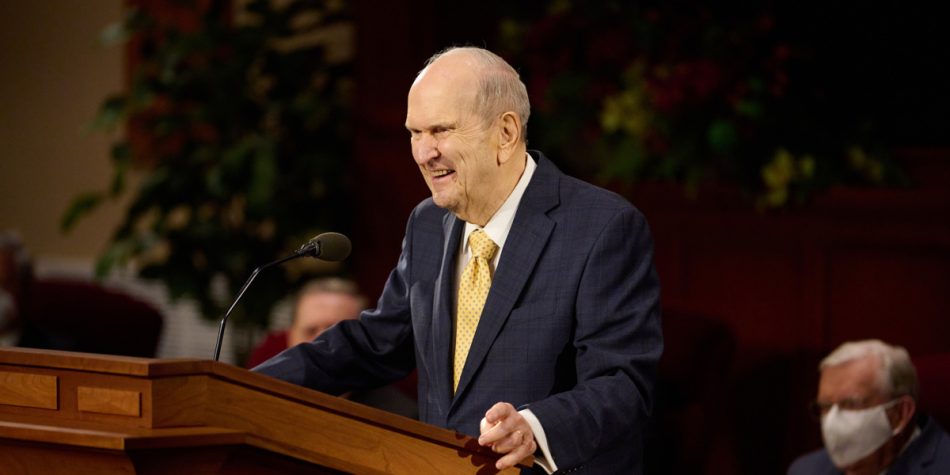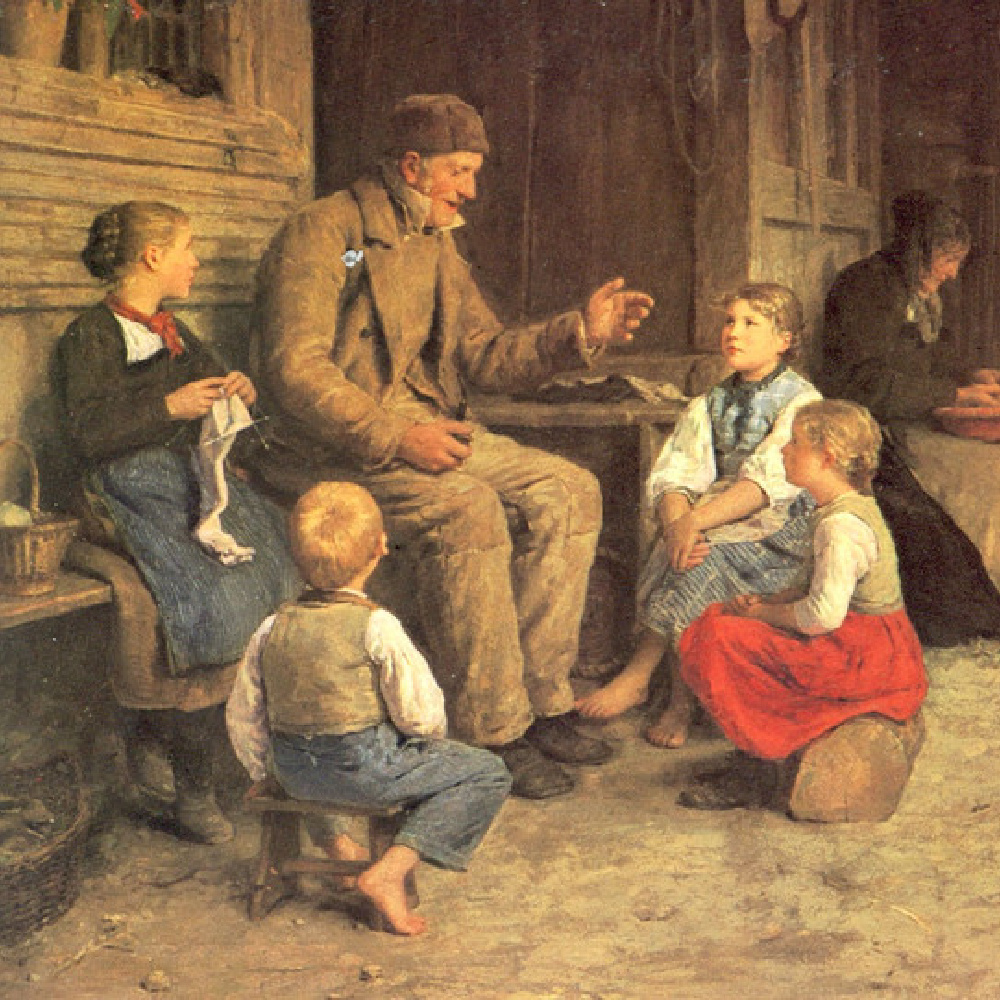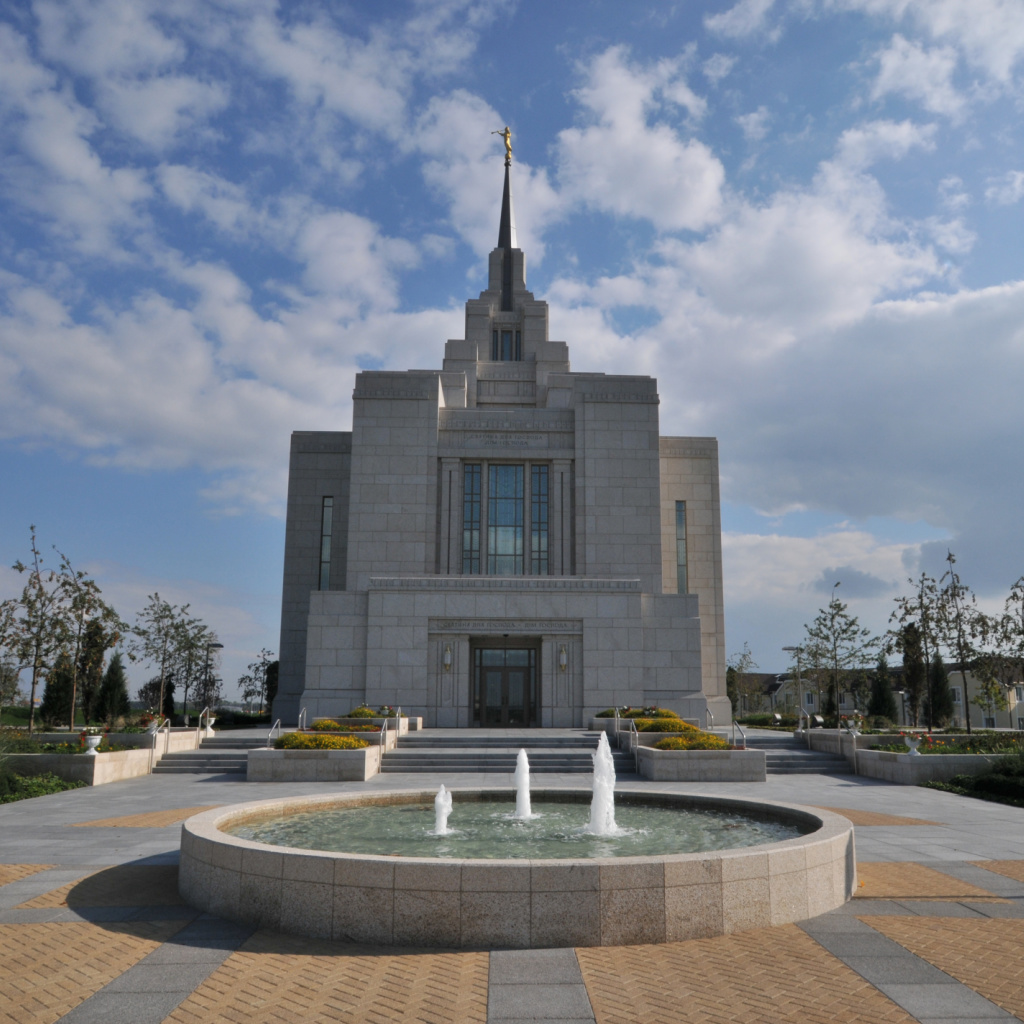Toxic anger, overwhelming despair, and piercing anxiety now spread over the earth like the plagues they are. Where is anyone to find reprieve and relief―perhaps even a reason or two to stay hopeful?
At General Conference, that’s where. For nearly 200 years, Latter-day Saints have gathered twice a year in a “general conference” of the Church of Jesus Christ. Rather than just for fun (although it’s often that too), this happens under the direction and influence of higher inspiration.
The history of these gatherings goes back even further than the modern history of the restored New Testament Church, however. Anywhere followers of God exist, they have formally gathered to worship and to strengthen and edify each other. Sometimes these words can challenge us, of course. As the Book of Mormon prophet Jacob said to ancient disciples, “it grieves me that I must use so much boldness of speech concerning you.” But then he acknowledged that many had “come up hither to hear the pleasing word of God, yea, the word which healeth the wounded soul” (see here and here for video depictions of what this early conference may have looked like). His ministry of peace and reconciliation, are not limited.
Know any other wounded souls in the world? We sure do. Something that could actually heal those wounded souls is of greater worth than almost anything the world could offer. In what follows, we share what touched and taught us from this recent conference―highlighting some of the many impressions and insights that comforted and healed our own souls this weekend. If you haven’t yet, we hope you won’t be satisfied to nibble on these morsels―instead, going to feast for yourself (all the sessions are available online to stream here).
Cassandra Hedelius
For the second General Conference in a row, Elder Gerrit Gong spoke about family history and temple work, and for the second General Conference in a row, I’m highlighting it. I don’t know how many families suffer severe wounds from abuse and estrangement, but I suspect it’s many―and many more than we’d suspect. Elder Gong described a woman and her husband who joined the Church and joyfully accepted the doctrine of temple work for the dead, but with one hitch: the woman’s late father had been unkind, probably abusive, to the point that she could not bring herself to arrange for his temple ordinances to be performed. In that sort of situation, it’s too facile and unhelpful to simply say, “oh, just forgive,” or “just do the temple work and let the Lord sort it out.” The Lord can indeed sort it out, but not without real, meaningful reconciliation, which requires real and meaningful change.
Elder Gong described how the woman wrestled for years and finally received the measure of peace and forgiveness necessary to have her father’s temple work done. She then saw her father in a dream. “Look at me,” he said. “I am all clean.” Her father had greatly sinned against her, and while she received Christ’s atoning power to heal from those wrongs here in mortality, the Savior was also at work in the spirit world, helping her father repent and change. His repentance may have been “sore … exquisite … and hard to bear,” but so worth it in order to be clean and reconciled to God and to his family. [An earlier talk by Sister Kristin Yee also demonstrated the power of Christ to heal relationships estranged through mistreatment and abuse].
The Savior’s power, and His ministry of peace and reconciliation, are not limited even by death, let alone by human wickedness, defiance, or weakness. As Elder Gong put it, “a thousand millennial years when Satan is bound may give us needed time and surprising ways to love, understand, and work things out as we prepare for eternity.”
The Savior’s eternal unwavering invitation is to “come, follow Me.” Some will never accept it. But there is so much hope that many still will. Cheer saturates all the teaching we heard.
Jacob Hess
I’ve been feeling the weight of surrounding events, like many―compounded by the despairing commentaries on every side about what’s ahead. President Nelson likewise acknowledged “a most complicated time in the history of the world” we are living in, where “we are accosted daily with an onslaught of sobering news” that can leave us “overwhelmed and exhausted.” But it struck me what he taught next:
So many wonderful things are ahead. In coming days, we will see the greatest manifestations of the Savior’s power that the world has ever seen. Between now and the time He returns ‘with power and great glory, He will bestow countless privileges, blessings, and miracles upon the faithful.
This is something he’s emphasized before―“He whose Church this is will pour down His power and blessings upon the heads of the Latter-day Saints, the likes of which we have never seen” (October 2018); “Remember that the fulness of Christ’s ministry lies in the future” (April 2020). And this too, also from April 2020:
We live in the day that “our forefathers have awaited with anxious expectation.” We have front-row seats to witness live what the prophet Nephi saw only in vision, that “the power of the Lamb of God” would descend “upon the covenant people of the Lord, who were scattered upon all the face of the earth; and they were armed with righteousness and with the power of God in great glory.” You, my brothers and sisters, are among those men, women, and children whom Nephi saw. Think of that!
Although his positive predictions are more explicit, this same cheer saturates all the teaching we heard. Did you hear anyone share anger, fear, or lament as you hear on cable news channels? Not one. Even Elder Anderson’s depiction of the “wheat and the tares” was hopeful and encouraging.
In a world where loud voices are insisting that the path to greater freedom and sweetness is running away from covenants and other commitments, I was also struck by President Nelson’s comment: “I grieve for those who leave the Church because they feel membership requires too much of them. They have not yet discovered that making and keeping covenants actually makes life easier!”―through “increased access to the power of Jesus Christ.” My wife and I have found that for ourselves, as we’ve spent more time in the temple over the last year―discovering the truth that we can “find rest from the intensity, uncertainty, and anguish of this world by overcoming the world through your covenants with God.”
Carol Rice
The power of parables and the art of storytelling was employed by many speakers this weekend. Elder David Bednar centered his talk on one of Jesus’ parables, “The Royal Wedding Feast,” highlighting its layers of truth. One thing that makes stories like this powerful is that the meanings most pertinent to each individual will stand out.
One meaning I heard in this parable calmed my troubled heart―that part of my soul that cries, “choose me” like a fourth grader desperate to be picked for the cool team, the winning team. I’m not alone. In recent days I have talked to others who are feeling concerned about being “ready” for Jesus to come again, wondering whether or not they will be found among the chosen. Elder Bednar made it perfectly clear that this is entirely our choice; it is we who will choose to be chosen or not―remarking, “God does not have a list of favorites to which we must hope our names will someday be added.”
Elder Bednar then underscored the reality that all are invited to the feast, even expected to attend. The team is big enough for us all. In fact, invitations are sent out long before the feast, with reminders the day of. That means we all receive plenty of time to plan and prepare. But, as in the parable, some may choose to ignore the invitation. Others may attempt to join the feast but refuse to wear the required royal garment and then be sent away. But for those who sincerely want to be a guest at the Lord’s bounteous feast, Elder Bednar challenged us to pray to know what might impede us from being there. He assured us that our prayer would be answered with “eyes to see” ourselves as we really are. This was encouraging, inspiring, and hopeful to hear, that “He does not limit ‘the chosen’ to a restricted few. Rather, you and I ultimately can choose to be chosen …” The righteous exercise of our moral agency is all we need to make the team. What a beautiful story that is.
Jeff Bennion
A few months ago a dear friend shared with me her recent separation from her husband who had been verbally abusing her for many years. More recently it escalated into physical abuse as well. After an emergency room visit and encouragement from the police, she found the courage to separate from him. That several speakers mentioned abuse, most notably President Nelson, was a balm to her soul. It strengthened her in her doubts she did the right thing (of course she did!) and also provided a vivid example of the headline to this piece. For her, these truly were words which heal the wounded soul. The controversies about abuse are so politicized it’s easy to forget the real human toll of abuse. It’s easy for scoffers to say (a) that Church leaders are only trying to shield themselves from liability and have no real care for abuse victims and (b) there is no way messages crafted for an entire Church membership could be individually customized to bless and speak direction to one person. My friend begs to differ. And we both testify that this Church is led by inspired leaders who dearly love and care for its members. As confirmed by the Holy Spirit, both of us received customized messages of direction, correction, and encouragement for our lives.
Laura Whitney
It’s often suggested that we go into Conference weekend with a specific question in mind. After years of turmoil and depression, I feel quite happy with life at this point. So my question was, “What lack I yet?” The answer came repeatedly and clearly over the course of five sessions, “Jesus.” Elder Ryan K. Olsen summed it up near the end, “Jesus is the answer.” Many other speakers addressed the trials, hardships, and pains of life. I reflected in my journal about my own past difficulties, “It is hard, it is puzzling, it is painful.” But “He is Christ.” Jesus indeed is the answer, and I intend to spend more time at His feet listening, learning, and being filled with His power and gentle goodness.
Michael Peterson
I discerned this weekend that everything I need to correct, improve, and focus on personally―and what will bring healing in all things―was presented in this conference. I thought President Nelson’s Sunday morning talk was a spiritual masterpiece, explaining why and how living in our covenants in Christ is so much an easier way to live than abandoning them. He highlighted that real power and peace in our lives come from those covenants and being yoked to Christ. I felt that hope in Christ.
Odessa Taylor
A common scripture quoted throughout this conference was John 16:33: “These things I have spoken unto you, that in me ye might have peace. In the world ye shall have tribulation: but be of good cheer; I have overcome the world.” It came up so many times that I could almost quote it myself by the end of the sessions. It wasn’t until after the sessions were finished, though, that I realized why this scripture stood out to me.
Something that has weighed heavily on my mind for the past little while is the worry that I may lose sight of what’s truly important in favor of the more popular, worldly teachings. Though it wasn’t an active question in my mind during the conference, I realize I’ve been unconsciously seeking comfort regarding this. How could I ensure that I stayed on the path? Would I be strong enough to keep my head above the dangerous waters of the world? Trust that God knows us.
And there was my answer, multiple times: “Be of good cheer; I have overcome the world.” Putting my faith in Jesus Christ is the way I can ensure that I stay on the path. He will pull me out of the depths of those turbulent waters swirling around us all when I am in need. And that scripture wasn’t the only answer to my unconscious prayer; there were plenty of messages and testimonies encouraging us—encouraging me—to put my trust in my Savior and let Him work out the details through His limitless power.
Benjamin Pacini
I was riveted by Sister Browning’s talk. I have eye problems. It spoke to me. I similarly loved Elder Christofferson’s talk on belonging―a private theme of mine for the last year or so.
But the greatest takeaway from the conference for me was about costly discipleship.
General Relief Society President Camille Johnson recently visited Rexburg to train BYU-Idaho faculty. I was struck by what she taught. She reminded us of President Nelson’s injunction on identity: that we are, first and foremost, children of God, children of the covenant, and disciples of Jesus Christ. She then asked us, “how will you teach this to students?”
We gave many good answers. She seemed to like them, anyway.
Then she added her own thought―one that has resonated with me: We teach these things effectively when students can feel our willingness to sacrifice for them.
I immediately thought: “as a child of God, I cannot allow someone to speak against my brother.” “As a child of the covenant, I cannot soft-peddle my devotion to a gospel that I love and a church that has so profoundly blessed me.”
This was a theme for this conference, too: Elder Holland magnificently said that it is costly discipleship―bearing our crosses―that is the true mark of those who follow Him.
What is costly discipleship like after this conference?
- I know some who are grappling with that same talk: many who have loved wearing the cross are introspecting over it. I would never judge someone who decides to wear one after his talk, but I honor those who take seriously an apostle’s call on the matter.
- It has become edgy and popular to speak against civility―but Elder Cook called us again to be kind, to focus on others, and to engage deliberately in the world.
- Sister Yee’s talk on forgiveness both sets us free and demands a high price. We have the beautiful blessing―and strict admonition―to forgive and to be forgiven.
- It will take time for me to develop the eyes to see and the ears to hear the full message of Elder Bednar’s explication of the parable of the wedding garment; but to understand it fully, I wonder if wearing a far more literal piece of clothing will not be required.
I don’t speak lightly of sacrifice. Truth be told, there was something hard for me at this conference. I’m an old, curmudgeonly assistant principal. I love the safety and clarity that rules provide. My first reaction to the new For the Strength of Youth pamphlet was one of concern.
And yet, reading its pages, I’m thrilled. I couldn’t have wished for something better. It is, and I don’t say this lightly, inspired.
My fear, rather, is about us. God is giving us more freedom. Are we ready for it? Will we live up to it?
My costly discipleship this season will be to trust that God knows us―and that we’re ready to own our own discipleship a little more fully.
















